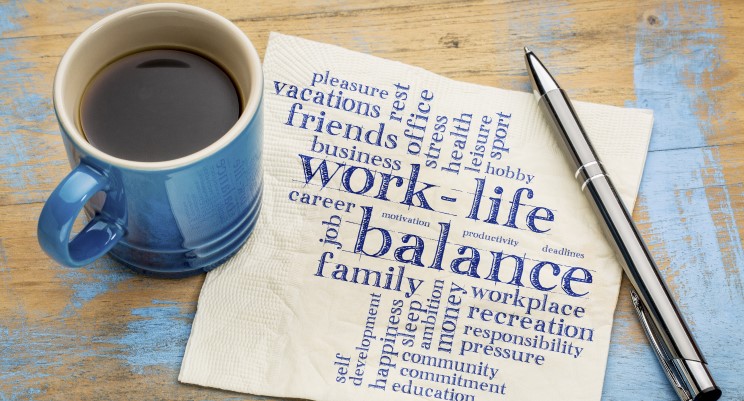First a quote: “Never get so busy making a living that you forget to make a life.” — Dolly Parton
Last week I was co-facilitating a workshop for a major player in the aerospace, military, space and medical technology industries. On the final day, workshop participants heard from a division president who closed his presentation with an “ask anything you want” Q & A session.
One of the questions asked was, “How do you manage your work-life balance, and what advice can you share with us?” I’m occasionally asked the same question, so I must admit, I found some satisfaction as the division president struggled to find the right words and advice. He said he was probably not the best role model to be offering advice on the topic. He did however say one’s family must always be a priority and, he encourages his team to proactively and purposefully make time for family.
This is certainly an important topic. My sense is that it is even more important to the Gen X & Y generations; many of whom watched their baby boomer parents dedicate their lives to their employers only to be RIF’d, downsized, rightsized, sold, off-shored or outsourced.
My family would likely say I have much to learn in this area as well. I have missed many important dance recitals, soccer matches and high school basketball games in my life. My wife offered a gentle, but telling smile, when I told her the topic of focus for this week’s MMM. And, here I am in my office on a Sunday afternoon writing instead of spending time with her.
I submit balancing life’s challenges is a never-ending set of tradeoffs. Most of us can have anything we want if we’re willing to put in the effort, we just can’t have everything we want… at least not without some tradeoffs.
I do however have a few thoughts to offer on the topic:
- Some balls are made of glass – as we struggle to juggle all the “balls of life”, we must remember; family and health balls are made of glass. If we drop either of those, they could very well shatter into a thousand pieces. The career ball however is made of rubber; if we drop that ball, we can certainly bounce back and move on to the next chapter.
- Work-life balance does not mean that every day is balanced; i.e., 8 hours each of work, personal/family time and sleep. My sister, for example is an RN and for years, she chose to work four 10 to 12-hour days so she could have three full days off most weeks.
- Balance may mean up & down cycles – there are many professions that have busy seasons:
– retailers have the “all hands-on-deck” holiday seasons and the “dog days” of summer
– accountants have monthly & quarterly close cycles, and of course, year-end taxes to complete.
– farmers have planting and harvesting cycles
– coaches have recruiting, playing and hopefully tournament seasons - And then there are the seasons of life. I have often said, “The harder you work at the start of your career, the less hard you will need to work at the end your career.” Think about entrepreneurs who work extremely hard in the beginning to launch new concepts, services and businesses. If they do it well, they may reap the benefits of their efforts in the future, often in multiples of tens, hundreds or thousands. It is a price they’re willing to invest.
Or, think about young people launching their careers. For me, it is not about “paying your dues”; it is more about gathering the knowledge, wisdom and experience that will be richly rewarded in a competitive marketplace in the future. The sooner you build the base, the more time you will have to leverage it in the future.
In closing, I offer something I learned from Stephen R. Covey: “There is a difference between prioritizing your schedule and, scheduling your priorities.” If you put your priorities, let’s say for instance, going to the gym, or celebrating your daughter’s birthday or going on a date with your spouse, on your calendar, you are more likely to make it happen. We can choose to be more proactive and less reactive your how we spend our time. Sometimes balance is more about personal discipline than anything else.
Bonus quotes:
“Things that matter most must never be at the mercy of things that matter least.” —Johann Wolfgang von Goethe
“Most people chase success at work, thinking that will make them happy. The truth is that happiness at work will make you successful.” — Alexander Kjerulf
How will you lead differently, or better, this coming week?
All the best! Give your best. Do your best. Be your best and the best shall be returned to you in full. I promise.
Sincerely,
Bryan Yager
208.376.1701
“Expanding Your Capacity for Success”

